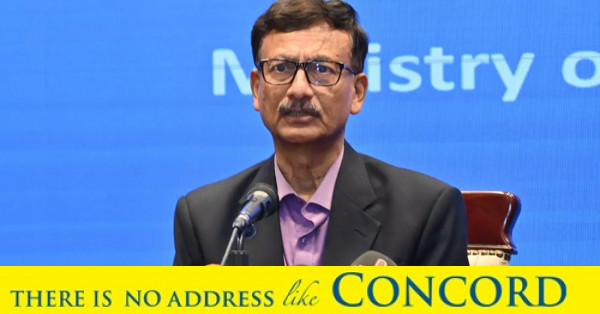Bangladesh’s trade, economic relations with China very important, he says
Foreign Affairs Md Touhid Hossain. File Photo: UNB
“>

Foreign Affairs Md Touhid Hossain. File Photo: UNB
Highlights
- Bangladesh seeks to strengthen economic ties with China, including better loan terms
- Lower interest rates, extended repayment terms, and waiver of commitment fees on Chinese loans are key requests
- The Global Development Initiative (GDI) will be discussed, along with budgetary support from China
- Enhancing trade and investment, addressing trade imbalances, and promoting Chinese investment in Bangladesh will be prioritised
- Cooperation in agriculture, education, infrastructure, renewable energy, and addressing the Rohingya crisis will be explored
Bangladesh plans to request China to lower loan interest rates, extend repayment terms by 30 years and waive commitment fees to bolster economic cooperation.
The issues along with budget support will come up in a big way during Foreign Affairs Adviser Md Touhid Hossain’s bilateral visit to China next week.
“…all economic issues will come up for discussion. Some issues are very important. Bangladesh’s trade and economic relations with China are very important,” the adviser said while talking to reporters at the Ministry of Foreign Affairs today (15 January).
He said they would discuss budgetary support, explore China’s assistance, expedite loan disbursement for Bangladeshi projects, and seek a full withdrawal of the commitment fee.
A commitment fee in China is a charge made by a lender to a borrower for keeping a line of credit available.
Touhud will pay the visit at the invitation of Chinese Foreign Minister Wang Yi on January 20-24 which is described as “very important first bilateral visit” after the formation of the interim government led by Prof Muhammad Yunus in August last year.
The foreign adviser said he will leave Dhaka on 20 January (evening) and will return to Dhaka on 24 January. He will have engagements on 21-23 January.
Bangladesh sees Touhid’s maiden bilateral visit to China as a “great opportunity” to further strengthen and deepen the bilateral relations with Beijing giving an outline for the future cooperation.
Asked about GDI, the adviser said there are some issues that will continue to be discussed with a positive approach and noted that Bangladesh’s relationship with China is not just government-specific.
The Global Development Initiative (GDI) is a multilateral development initiative proposed by Chinese President Xi Jinping in 2021.
The GDI aims to promote global development by addressing challenges such as poverty, climate change, and food insecurity.
Asked about a discussion over 5 billion budget support issue initiated during the previous regime, Touhid said that discussion remains in place
“This visit is a great opportunity to further strengthen and deepen the bilateral relations between Bangladesh and China,” Spokesperson at the Ministry of Foreign Affairs Mohammad Rafiqul Alam told reporters at a weekly media briefing recently.
The ongoing cooperation between Bangladesh and China in key areas, including economic collaboration, trade, and investment, will be reviewed during the visit, according to Spokesperson Alam.
The discussions aim to outline the future framework for strengthening bilateral relations.
The visit will also focus on fostering cooperation in agriculture, education, infrastructure, renewable energy, and finding sustainable solutions to the Rohingya crisis, he added.
At the invitation of Chinese Foreign Minister Wang Yi, Adviser Hossain will engage in discussions on various issues of mutual interest with his Chinese counterpart during this visit.
Bangladesh and China are preparing to celebrate the 50th anniversary of their diplomatic relations in 2025.
To commemorate this milestone, both countries have initiated several programmes. “This visit marks an auspicious beginning to the golden jubilee celebrations of diplomatic ties between the two nations,” Alam said.
China is a significant strategic partner of Bangladesh, serving as one of its largest trading and development partners, Alam said.
He noted that bilateral relations have evolved into a “Comprehensive Strategic Cooperative Partnership,” reflecting their multidimensional collaboration.
The annual trade volume between Bangladesh and China stands at approximately $25 billion, though the trade balance is currently unfavorable to Bangladesh.
The visit is expected to address trade restructuring and explore ways to boost Chinese investment in various sectors within Bangladesh, Alam remarked.
The foreign adviser is scheduled to deliver speeches at the China Institute of International Studies and the Shanghai Institute of International Studies. He will also meet business representatives in Shanghai to promote increased Chinese investment in Bangladesh.


